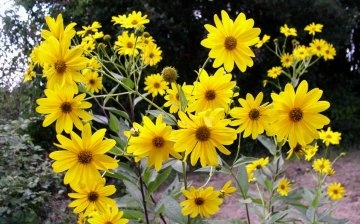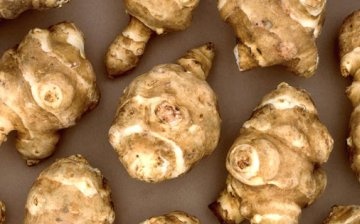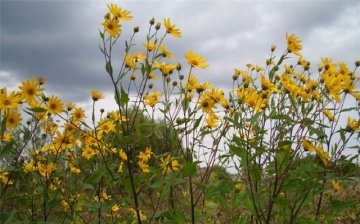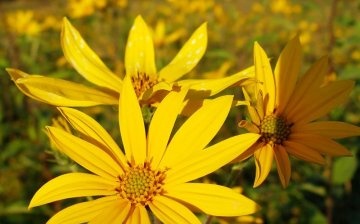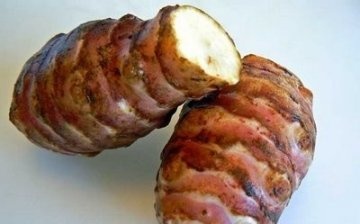Ground pear or Jerusalem artichoke
Jerusalem artichoke appeared in Russia relatively recently, only 400 years ago. He came to us from North America, where it is still found in the wild. In Russia, it is only grown as a fodder, food and industrial crop. Better known as "earthen pear" and "Jerusalem artichoke". Sometimes, Jerusalem artichoke was confused with potatoes, considering one of the varieties.
Perennial herb. Refers to the type of tuberous plants of the genus Sunflower of the family Astrovye. Its height can reach two meters. It has a powerful root system on which tubers develop.
The chemical composition of Jerusalem artichoke is similar to that of potatoes. The nutritional properties and vitamin-mineral complex contained in an earthen pear are many times superior to those of vegetables. The sugar content in Jerusalem artichoke depends on the harvest time of the plant.
There are about 300 different species and hybrids of the earthen pear in the world. They differ in the size and number of tubers, vegetation and decorativeness. More popular varieties in Russia: Red, White, Interest, Skorospelka, Nakhodka, Patat, Vadim, Leningradsky, North Caucasian, Maikop and Interest.
The conditions for growing Jerusalem artichoke are in many ways similar to growing potatoes. It is not demanding and winter-hardy, photophilous and tolerates drought well. Grows in southern and central Russia. Propagated by tubers. Seeds in the middle lane and in the north do not sprout.
Any soil is suitable, but light loamy and sandy loamy soils with good moisture are preferable. Only strongly acidic, saline soils, too wet, will not work. An earthen pear loves mineral fertilizers and humus.
The most important value of Jerusalem artichoke is tubers. They are used for food by people and feed animals. They are eaten raw and fried. They are best stored in the ground. The dug tubers are not stored for long. Jerusalem artichoke in the ground remains up to -40 ° C.
Mixed fodder, silage, hay and grass flour are made from green mass. The stems produce juice that is used to make molasses. Jerusalem artichoke can be grown as an ornamental plant to create hedges.



